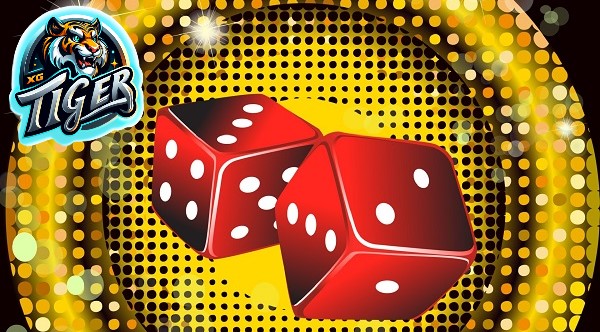Table of Contents

In financial markets, the term volatility is used as a measure of the variation in the value of an investment. In online casino gambling, the term refers to the ups and downs of winning and losing. Because of the way most casino games are designed, it’s possible to go up a lot one minute and down the next. These bets are considered volatile.
I read a good analogy once that explained the concept well to me. Think of the ocean. An ocean sometimes has small waves that don’t build up, medium-sized waves, and large waves that hit the shore. Think of volatility as a measure of how much the water changes overall over the course of a day.
Before you think volatility is a bad thing, understand that its mechanics are a big part of gambling’s appeal. This article at Xgtiger Casino explains how the concept of volatility works in online casino gambling.
Volatility vs. House Edge
Most gamblers I know (and most gambling articles you read online) focus primarily on the house edge. The house edge is the online casino‘s profit expressed as a percentage of the player’s bet. This is an important number to know, but it has nothing to do with volatility or win frequency.
The Two Sides of Volatility
This concept refers to changes in your bankroll over time.
Volatility has two sides – the player controls one when he chooses the size of his bets. We refer to the practice of controlling this aspect of a game’s volatility as “money management.”
The second component of volatility is the natural swing in results over time. This is the more important part of volatility, the point at which the game determines whether your bet is multiplied and returned to you, or lost.
We can identify games by their volatility. Coin-flip, which has two possible outcomes and pays 1:1 to the winner, is a low volatility game, as you have a 50/50 chance of winning and losing each time. The wins aren’t big, but the losses aren’t big either. Single-number bets in online roulette are high volatility bets, as both the potential to lose and the potential to win are high.
Some Examples of Volatile Games
The volatility problem comes when some games (mostly table games) are more volatile than they are. The most disastrous outcome is that you could underfund your bankroll and risk going broke sooner than you planned. High volatile games are great at draining bankrolls.
To explain how some games are more volatile than others, let’s look at some specific online casino tournaments.
Baccarat
Online Baccarat is a heads-up competition that is the closest thing you can bet to a coin flip in an online casino. That’s because the player and the banker win about fifty percent of the time. Since the payouts are 1:1 for the player and 0.95:1 for the banker, this is clearly a low volatile game.
Caribbean Stud Poker
Here is an example of a volatile game. The fluctuations you see in Caribbean Stud Poker are a sure sign that the game is volatile. Some hands win up to five base bets at a time, and then there’s the high-volatile $1 progressive side bet. Sounds like an expensive game for an online casino, doesn’t it?
Check the pay schedule The bottom of the pay schedule is designed to increase the house edge. Also, the game itself is designed to reward the occasional big win despite the fact that most of your Caribbean Stud Poker hands are losers.
The game tricks you into thinking it’s a low volatile contest, as you make up for regular losses with random big wins. This is a common theme in high-volatile casino games.
Blackjack
If you know a lot about gambling strategy, you might be surprised to see online blackjack on this list. After all, the game has one of the lowest house edge figures in casinos – just 0.5% when played with perfect strategy. But again, a low house edge doesn’t mean the game isn’t volatile.
When not using perfect strategy, the dealer has a five percent edge in terms of win frequency. You can reduce that edge by doubling and splitting appropriately (according to basic strategy), and if you’re playing at a good table, you’ll get additional payouts for natural blackjack that also reduce that edge.
The problem is, to reverse the dealer’s advantage, you have to risk extra chips by doubling down, risk bigger losses by splitting, and waiting for natural blackjacks to generate big payouts. In other words, you’re hoping for big wins to offset your multiple losses, which is the definition of volatility.
Strategy for Playing Volatile Games
The first trick to playing high-volatility games well is to recognize them.
The easiest way is to find a game that pays big jackpots and other big payouts. In general, the more variation between the game’s top prize and its bottom prize, the more volatile the game.
The second trick – manage your bankroll and know what works best for high volatile games.
Don’t think that playing volatile games is just a waste of money – volatility is just an opportunity for you to earn a big payday, even if it requires a bigger bankroll if you’re going after that jackpot. Since some games (craps, slots, roulette) allow players to bet a lot, at once, you need to adjust your bankroll to suit.
The third trick – remember that volatility also works backwards.
Most volatile games pay out large and infrequent prizes, but others pay out regularly in small chunks with occasional big losses. The best example is the lay bet in craps. Don’t think there’s anything wrong with this type of betting – the only downside is that you need a huge bankroll to cover your losing streak. Wagering a lot of money to chase small wins doesn’t make sense.
Conclusion
Are you an avid gaming fan and want to know how to bet on online casino games? At Xgtiger, you’ll get the latest information on this year’s best casino games and a variety of gaming options, all in one place.
To start your online gambling journey, all you need to do is create an account on the site, deposit funds and you’ll be ready to bet on the best and most anticipated casino games.
Frequently asked questions
Volatility refers to how frequently a slot game pays out wins. Games with higher volatility tend to have bigger potential jackpots but longer periods between wins compared to lower volatility games.
A high volatility slot is one that, overall, has a low payout frequency. This means payouts hit less often than they do for medium and low volatility slots. The counterpoint to lower payout frequencies is that, once you do hit a win, the average value is higher than it is for other types of slot game.



